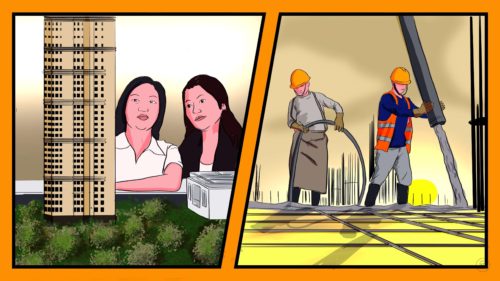Update: The pros and cons of a property tax
A story from the The China Project A.M. newsletter. Sign up for free here.

Since Beijing approved the controversial pilot property tax last week, the debate rages on. Here are what proponents are saying.
- A property tax could rein in real-estate speculation and address income inequality, since property is distributed more unequally than income.
- Land sales, which are 40% of local government revenues, are slowing down, and property taxes could help replenish local coffers.
The context: China has actually had a real estate tax since 1986, but it mainly targets properties in the commercial sector. The property tax, which would target residential homes, is unprecedented. It was attempted in the 2000s but fizzled out due to overwhelming opposition. Opponents argue the following:
- In Tier 1 cities, a property tax could derail families. A 1% tax on a modest apartment in Shanghai could amount to $7,000-$10,000, more than an average citizen’s gross income!
- A property tax is double-edged: It will add to government funds, but it will depress property demand, taking away even more from traditional land sales revenue.
The takeaway: Beijing will have to balance a number of objectives when designing their pilot. Along the coasts where real-estate is hot, the tax may be a coolant, but also a headache for residents. In inland regions, cash-strapped local governments may need the tax to raise money, but it could also hurt an already-teetering property market.






